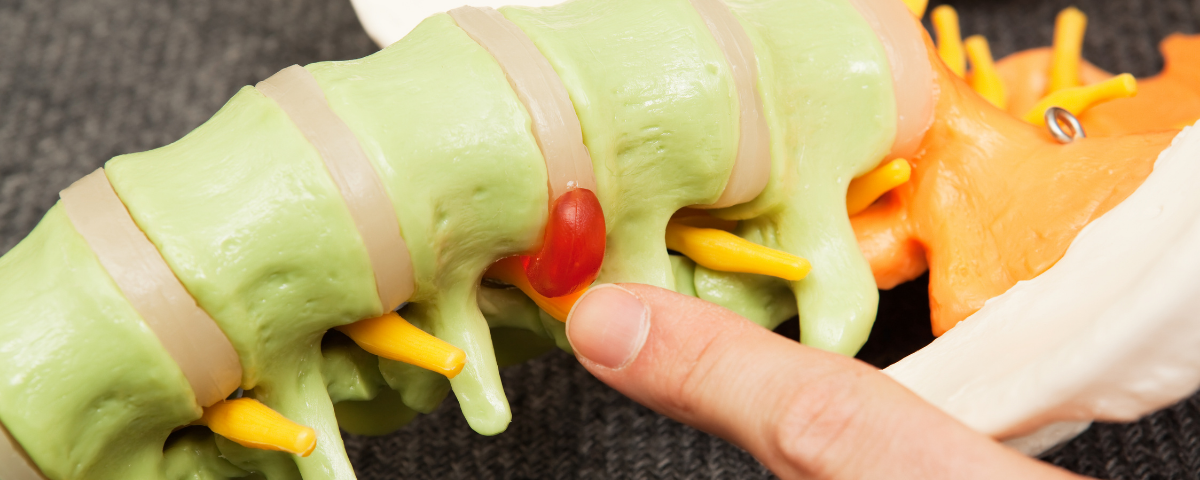Why do certain people have a harder time training with a herniated disc when it comes to bodybuilding when compared to others? Injuries can happen in any sport or activity when a person is pushed to their limits, whether it be from a car accident, a fall, a serious accident, or a sudden event. Injuries can happen to anyone, regardless of whether they are a pro, a bodybuilder, a personal trainer, a fitness model, or a regular everyday person.
Herniated discs are a common cause of shoulder pain, but they do not necessarily indicate that you cannot train. You can ask your doctor if it is safe for you to lift weights, but the answer often depends on the type of injury.
What is a Herniated Disc?
A herniated disc is a medical term used to describe the condition of an intervertebral disc (IVD) that has collapsed (herniated) into one of the surrounding spinal nerves. This causes compression of the nerve, which causes pain and can lead to paralysis.
According to the American Academy of Orthopaedic Surgeons (AAOS), a herniated disc can be defined as “a condition in which the soft disc material protrudes through the jelly-like substance that normally lines the vertebral body or protrudes into the spinal canal, causing pain and pressure on the surrounding nerves.”
A herniated disc is a bulge of the disc (the cartilage, not the muscle) that has slipped out of place. Herniated discs occur when one of the intervertebral discs inside the vertebral bodies rotates out of place. This can cause the joint between the bones to become painful. A herniated disc can cause pain in your back, neck, arms, legs, and buttocks. There are two types of herniated discs: extruded (also called bulging) and ruptured.
A herniated disc is a painfully common problem that often gives you a dull ache in your back. The condition develops when a herniated disc pushes outwards against other bones in the spine, pulling the vertebrae out of alignment. It can cause pain that radiates down your legs or numbness that’s both tingling and shooting into your lower back, toes, or other parts of your body. This condition is medically termed Sciatica. A variety of treatments and medications are available to help alleviate sciatica symptoms. However, in the event that you are experiencing constant pain and your social life, work, or relationships are suffering as a result, it may be time to consider Sciatica Surgery.
In case you choose to take this approach, be mindful to only proceed with an experienced surgeon. This is so that you can be sure that your surgery is performed correctly and safely, and to avoid any potential risks of medical negligence. While it is true that there are medical negligence lawyers (like those found at gadsbywicks, for instance) who can provide any kind of assistance during such an event, it is always best to try and avoid it in the first place.
Effect of Herniated Disc on our Body
A herniated disc can lead to a lot of pain and discomfort, and it is a serious condition that needs to be treated quickly to avoid further complications.
The word “herniated” is derived from the Latin word ”hernia” which means ”to burst”. A herniation occurs when the nucleus pulposus of the disc moves into the disc space. This means that some of the disc tissue moves outside the disc cavity. As the disc becomes more and more compressed, more and more of the disc is pushed out. This can be painful and irritating, especially in the lower back.
Several things can happen when a disc in the spine is torn or herniated. The most common is that the nerve that runs between the nerves that are running through the spinal cord can be pinched. This is called neurogenic pain, which is the main reason for pain in this type of disc herniation. When the disc itself is damaged, this can lead to more serious problems, such as bone spurs or tumors. If the herniation is severe enough, it can also cause damage to the spinal cord itself. If you have been suffering from chronic back pain constantly, you might have to consider seeing a professional, for which you can online search for Denver Back, Neck & Spine Surgeons or in another location. It’s important to discuss all the treatments and remedies you can adopt with an expert.
How to Treat Herniated Disc
A herniated disc, also known as a herniated disc, is a painful condition that has many causes. It refers to a small bulging disk between the vertebrae (bones) that presses on nerves and causes pain. Many types of Herniated Disc can occur, each with its causes and treatments. A herniated disc is most commonly caused by injury, accident, or degenerative disc disease. Due to the many causes of herniated discs, there is no single treatment that works for every case, but several different treatments are recommended for specific cases.
Fortunately, there are many effective treatments for herniated discs, including pain medications, physical therapy, and spinal injections.
Overall, I would say it is possible to continue to train even with a herniated disc. However, you will need to take precautions to avoid aggravating your back. You might also need to adjust your training to avoid movements that cause pain. If you are experiencing back pain, you should speak to your doctor. If necessary, talking to a neuro specialist like dr timothy steel, or others of comparable caliber for guidance can also be considered. Many doctors would recommend you rest, but this might not be an option if you are an athlete. I hope this article has helped you.
